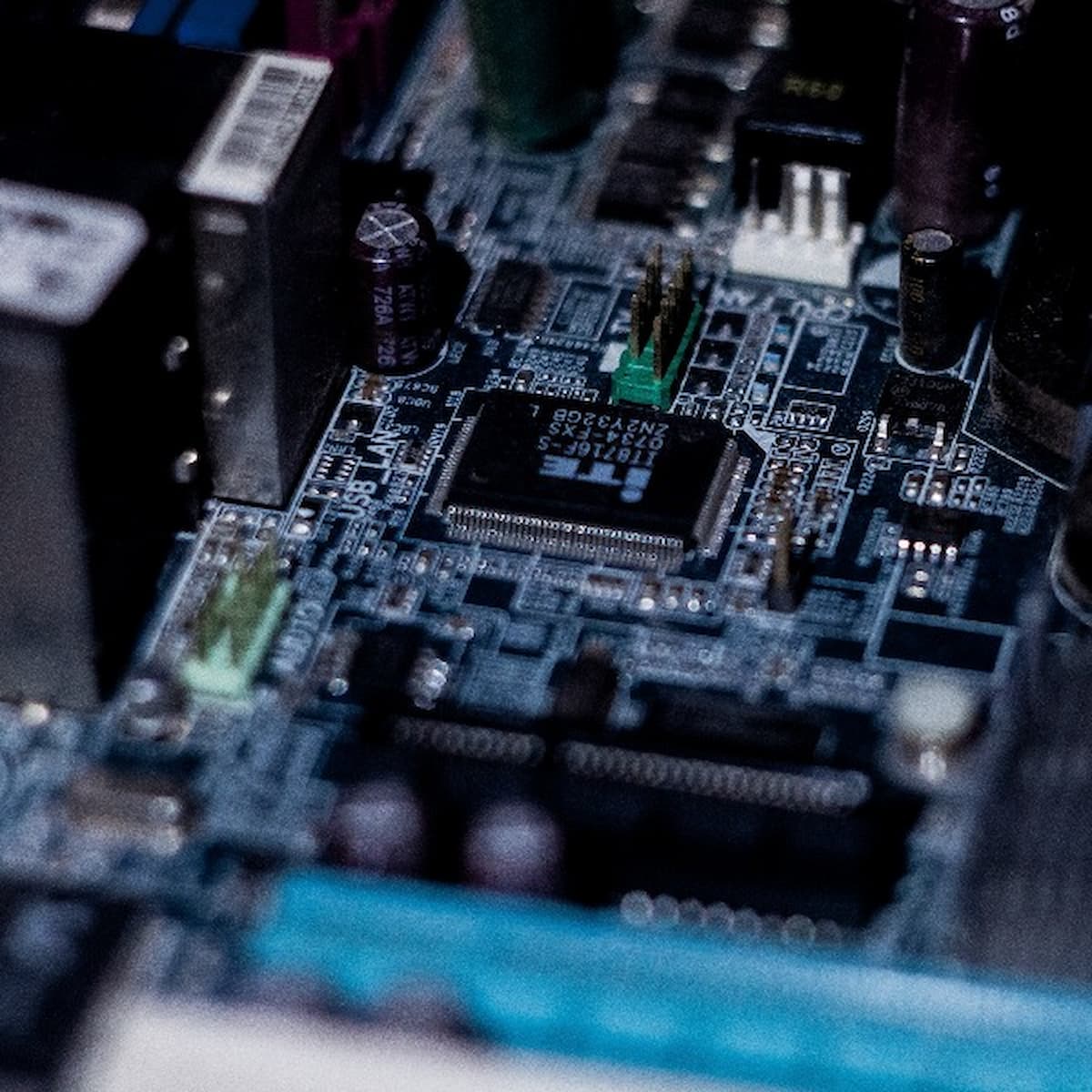From theory to investable reality – the Quantum Era has quietly arrived
Insight
At the Consumer Electronics Show in January 2025, Nvidia CEO Jensen Huang stated that meaningful quantum computing was likely 15 to 30 years away. Just three months later in March, speaking to an audience of quantum technology leaders, he adjusted that view.
The correction was necessary: the quantum era isn’t decades away—it’s already here.
What is it?
Quantum Computing leverages quantum mechanics to perform calculations far beyond classical computers. Here is a quick description of some widely used quantum terms before we look at what it is!
- A Qubit: A qubit, or quantum bit, is not limited to just 0 or 1. Due to superposition, it can represent both simultaneously. This enables quantum computers to evaluate multiple possibilities simultaneously
- Entanglement: Qubits can become entangled, meaning the state of one instantly influences the other, regardless of the distance. This interconnectedness allows for robust quantum correlations across large-scale computations
- Quantum Interference: Quantum algorithms utilize interference to amplify correct outcomes and suppress incorrect ones. It’s like tuning the frequency of probability waves to isolate the optimal solution.
The fundamental component of quantum computing is the qubit, which maintains a dual-state existence due to superposition principles. Unlike traditional bits, qubits can exist in multiple states simultaneously through superposition and entanglement, enabling unparalleled computational power. Quantum systems utilize this property to execute extensive parallel calculations. Quantum systems utilize probability and quantum interference to discover the most probable solutions, enabling them to solve specific problem classes more efficiently. Quantum computers utilize entanglement and superposition to achieve exponential scaling, enabling them to solve problems that classical systems cannot handle.
Why now?
Unlike previous waves of technological disruption that arrived with highly visible, consumer-facing product launches, quantum computing is unfolding differently. Its progress is largely behind the scenes, embedded deep within critical systems across industries. This is not about a single “aha” moment—it’s about a series of breakthroughs that will quietly, but profoundly, reshape science, healthcare, finance, logistics, and national security.
Leading pharmaceutical firms are already leveraging quantum capabilities to accelerate drug discovery and enhance disease modelling. In the automotive and aerospace sectors, quantum techniques are improving battery design and hydrogen fuel cell efficiency. Organizations are using quantum hardware to generate encryption keys based on true randomness, bolstering cybersecurity against both classical and quantum-enabled threats. These are not speculative moonshots. They are competitive tools being deployed today—many of which are already outperforming classical methods.
Over the last 18 months, quantum hardware and software development has accelerated at a pace reminiscent of early classical computing. Milestones once thought to be a decade away—such as 100-qubit machines—have arrived far earlier than expected. IBM’s « Eagle » processor, with 127 qubits, was a landmark achievement, surpassing the 100-qubit threshold. Quobly, a French startup, is working to produce a 100-qubit silicon-based processor, aiming for industrial production. Earlier this year, Microsoft introduced the world’s first quantum processor based on topological qubits, marking a foundational leap forward.
And Governments are paying attention. China, Germany, the U.K., the U.S., and South Korea are leading in public investments, with many other nations ramping up their national quantum initiatives. Singapore too is heavily investing in quantum computing, with a National Quantum Strategy (NQS) backed by nearly S$300 million over five years (this is on top of a S$500 million announced in 2024). This initiative aims to establish Singapore as a leading hub for quantum technology and includes efforts to build quantum processors locally.
What this portrays is that early adopters—both corporate and sovereign—are gaining critical first-mover advantages. Early adopters are already filing patents, building infrastructure, developing software platforms, and shaping standards.
For investors, the timing is optimal. Market momentum is building, barriers to entry are lowering, and early movers have the opportunity to gain exposure to a technology poised to reshape entire sectors. Quantum computing is no longer just a theoretical concept—it is rapidly becoming an investable reality.
Already here now
Quantum-enhanced machine learning can process large datasets far quicker than conventional computers, especially when applied to detecting patterns. This ability to detect patterns in massive datasets could revolutionise several sectors in research, cyber security, energy, supply chain, climate change etc. Here are some examples of how Quantum is being used in some sectors and companies that are already engaged in this space:
Technology and Computing
IBM is developing quantum hardware and software through IBM Quantum, including the largest quantum computer as of early 2025, the Condor quantum processor. This quantum processor is the first in the world to surpass 1,000 qubits, making it the largest quantum computer built to date.
Intel is actively researching and developing silicon spin qubits using existing semiconductor manufacturing processes. Silicon qubits offer advantages over other qubit technologies, in terms of smaller size (higher density on a single chip) and operating temperature (Silicon qubits can operate at lower temperatures simplifying cooling requirements).
Microsoft is advancing quantum computing through Azure Quantum, offering cloud-based quantum solutions. It has created entangled 12 highly reliable logical qubits, improving qubit reliability and reducing noise.
NVIDIA is reportedly in advanced talks to invest in PsiQuantum as part of a $750 million funding round led by BlackRock, marking its first direct investment in quantum hardware. PsiQuantum aims to build a million-qubit photonic quantum computer by 2028 using chips manufactured on a commercial-scale CMOS line at GlobalFoundries, with recent technical progress detailed in Nature.
Google’s Willow chip and Microsoft’s Majorana 1 chip have demonstrated significant progress in reducing errors and scaling up quantum computing capabilities.
Finance, Risk Analysis, Investment
Goldman Sachs & JPMorgan Chase: Exploring quantum algorithms for portfolio optimization and fraud detection.
IonQ, listed on Nasdaq, is developing trapped-ion quantum computers for commercial applications, including financial modelling. They are partnering with enterprises to explore quantum-powered portfolio optimization. IonQ’s current generation quantum computer, IonQ Forte, is the latest in a line of cutting-edge systems, boasting 36 algorithmic qubits. The company has doubled revenue annually since becoming a public company in 2021. Available through all major cloud providers, IonQ is making quantum computing more accessible and impactful than ever before.
Defence and Aerospace
IBM is partnering with Raytheon Technologies (RTX) to advance quantum applications in aerospace and defence. Airbus collaborates with the quantum computing leader D-Wave to explore applications in aircraft design, maintenance, and flight optimization.
Healthcare & Pharmaceuticals
Pfizer & Roche are leveraging quantum algorithms to accelerate drug discovery and molecular analysis. MIT & Google are researching how quantum computing can enhance personalized medicine. Quantum Computing Inc. (QUBT) is exploring quantum algorithms for drug discovery and molecular simulations.
Cryptography & Cybersecurity
Quantum-safe encryption methods are critical for financial and defence sectors, ensuring security in the post-quantum era. Startups like Quantinuum and SandboxAQ focus on quantum-resistant encryption solutions. Rigetti Computing is a listed company that is building superconducting quantum processors to enhance encryption and security measures. They are already collaborating with government agencies to develop quantum-resistant cryptographic solutions. Specifically, Rigetti has received funding from the Air Force Office of Scientific Research (AFOSR) to develop chip fabrication technology. They are also participating in DARPA’s Quantum Benchmarking Initiative (QBI) to assess the viability of utility-scale quantum computing.
Energy
Rigetti has been awarded a contract from the Department of Energy (DOE) to develop a quantum simulation project for fusion energy.
Siemens Energy is applying quantum algorithms to enhance grid optimization and energy distribution. It is also researching quantumenhanced materials for next-generation energy storage solutions.
Challenges
Despite growing enthusiasm and investment in quantum computing, several obstacles remain before it can deliver full-scale commercial benefits. Addressing these challenges will be essential in ensuring quantum technology reaches its transformative potential across industries.
Technological Limitations: Quantum systems are fragile, prone to errors, and difficult to scale. Maintaining stable, high-fidelity qubits and developing robust error correction methods are ongoing challenges.
High Costs & Infrastructure Barriers: Quantum computers require specialized environments and expertise, making them expensive to build and operate. Reducing costs and expanding accessibility are essential for broader adoption.
Regulatory & Security Concerns: Patent disputes and quantumdriven encryption risks are growing. The looming threat of quantumenabled cyberattacks is a significant concern for governments and industries worldwide.
Conclusion
Even with challenges, improvements in technology, algorithms, and teamwork are bringing quantum computing closer to being useful and scalable.
This is why we see tech giants like Alphabet and Microsoft advancing their quantum research and development, competing for a share of what experts estimate is a $170 billion market opportunity for quantum hardware and software providers projected by 2040. Wellestablished tech giants are developing their quantum computers and will likely acquire the small companies ahead of the competition. This space is very promising, and every breakthrough counts.
The quantum revolution indeed began in the recent past rather than existing in some distant future.
Companies / ETFs
The companies mentioned in this document are provided for informational purposes only and do not constitute investment advice or stock recommendations. Their inclusion is solely to highlight organizations involved in the quantum computing sector. Readers should conduct their own research and consult financial professionals before making any investment decisions.

Disclaimer The law allows us to give general advice or recommendations on the buying or selling of any investment product by various means (including the publication and dissemination to you, to other persons or to members of the public, of research papers and analytical reports). We do this strictly on the understanding that: (i) All such advice or recommendations are for general information purposes only. Views and opinions contained herein are those of Bordier & Cie. Its contents may not be reproduced or redistributed. The user will be held fully liable for any unauthorised reproduction or circulation of any document herein, which may give rise to legal proceedings. (ii) We have not taken into account your specific investment objectives, financial situation or particular needs when formulating such advice or recommendations; and (iii) You would seek your own advice from a financial adviser regarding the specific suitability of such advice or recommendations, before you make a commitment to purchase or invest in any investment product. All information contained herein does not constitute any investment recommendation or legal or tax advice and is provided for information purposes only. In line with the above, whenever we provide you with resources or materials or give you access to our resources or materials, then unless we say so explicitly, you must note that we are doing this for the sole purpose of enabling you to make your own investment decisions and for which you have the sole responsibility. © 2025 Bordier Group and/or its affiliates.



